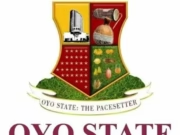In a landmark accomplishment that’s electrifying headlines, 15 innovative students from Brilliant Footsteps International Academy in Sokoto have succeeded in designing and constructing an electric vehicle entirely from scratch. Their achievement marks a transformational moment for STEM education across Nigeria, demonstrating what youthful ambition and grassroots determination can achieve when combined with northern ingenuity.
This feat, officially unveiled on July 13, 2025, challenges the long-held belief that cutting-edge technological innovation must come from megacities or multinational universities. Instead, under the arid sky of Sokoto, these secondary school students have proven that brilliance is not geographically bound but fueled by curiosity, effort, and local support.
Table of Contents

From Classroom Curiosity to Real-World Prototype
The project began as a bold classroom initiative—a response to students’ growing interest in engineering and sustainable energy. Rather than purchase a prefabricated kit, these young minds chose the more ambitious route: starting from zero. Over many months, they sketched blueprints, sculpted fibreglass for vehicle bodies, and engineered an electrical drive system powered by rechargeable batteries.
Guided by their science and mathematics teachers, the students worked collaboratively, rotating through roles in design, fabrication, electronics, mechanics, and testing. Sources affirm that all components used were either fabricated on-site or locally sourced, embracing a “Made in Sokoto” ethos that empowers local industry.
What emerged was more than just metal, wires, and circuits: a sleek, zero-emission electric vehicle able to transport its team on Sokoto’s dusty streets—a tangible symbol of STEM’s emerging potential in northern Nigeria.

A Beacon of Innovation in a Region Craving Inspiration
For years, STEM education in Nigeria has — frankly — underperformed. Access to modern labs, reliable power, and structured mentorship often favours the country’s southern, urban schools. But this Sokoto triumph confronts that reality head-on. It sought no external engineering firm, no foreign technology—only teenage determination and teacher-led guidance.
The ripple effect is already being felt. Schools across the region are taking note. Sokoto’s educational authorities have confirmed that this project will serve as a springboard: replicating the electric-vehicle curriculum in other secondary schools, with emphasis on renewable energy, electronics, and mechanical engineering.
Local leaders and parents are expressing immense pride. Sokoto State’s Commissioner of Education reportedly praised the students for “turning classroom knowledge into real-world achievement,” noting this signals a potential shift in the state’s educational trajectory.
Developing 21st-Century Skills, One Bolt at a Time
Building an electric vehicle from scratch isn’t just a trophy accomplishment. The process taught these young innovators how to think like engineers, solving real-world problems step by step. It instilled:
- Systems Thinking: Learning how batteries, motors, controllers, and chassis all interconnect.
- Hands-On Engineering: From welding steel frames to configuring circuits.
- Renewable Awareness: Recognising why electric power matters in sustainability.
- Team Collaboration: Managing roles, timelines, and design revisions.
Such experiences are rarely available to secondary school students in Nigeria, especially in the country’s north. But here, these skillsets are becoming a blueprint for future workforce readiness in science and technology.
A National and Global Echo
Though this story unfolded in Sokoto, its resonance is national—and even international. It challenges stereotypes that innovation must come from Lagos, Abuja, or international research centres. Indeed, the power of innovation lies in intention, not zip codes.
Within Nigeria, industry stakeholders are watching closely. Tech incubators and universities are inviting the Sokoto team to tour their facilities and mentorship programs. There are even early talks of sponsorships—matching their prototype journey with expert guidance for improvement and eventual certification.
Internationally, industry players focused on green mobility are praising Nigeria’s grassroots electric mobility scene—and hinting at partnerships. It’s a diplomatic signal: Nigeria is open for sustainable, homegrown innovation.
Overcoming Challenges, Powering Ahead
That said, the students’ journey was far from frictionless:
- Limited Resources: With no grants from national innovation funds, they relied on small community donations and local school contributions.
- Inadequate Infrastructure: Frequent power outages in Sokoto forced them to run night shifts, or recharge batteries at neighbouring institutions with backup systems.
- Permitting Hurdles: Registering an experimental prototype—even for demonstrations—required navigating red tape with local transportation authorities.
But these obstacles only amplified the learning curve and added powerful lessons in resilience. The students leveraged creative problem-solving at every turn, proving that adversity can be a catalyst for innovation.
What the Future Holds
The electric vehicle prototype may not yet be road-legal, but its symbolic value is undeniable:
- Curriculum Revolution: The Ministry of Education is considering rolling this model out as a national STEM pilot program.
- Energy Synergy: With national interest in renewable alternatives rising, secondary schools building solar- and battery-powered projects could be transformative.
- Career Pathways: Alumni hope to pursue further education in engineering, renewable energy, and entrepreneurship, carrying this success into university research and commercial startups.
The Sokoto project offers a blueprint: starting small, thinking big, and empowering students. It poses a fundamental question: What if every Nigerian secondary school could replicate this kind of hands-on journey?
Voices from the Team
Although not all team members are named in the original report, their pride is palpable. Speaking to local reporters, one student shared:
“We wanted to prove that a young student in Sokoto can learn what students in big cities learn—maybe even better—with passion and support.”
Teachers are equally enthusiastic. One science instructor told our correspondent:
“They tinker, test, fix, and retest—they want to understand why each wire matters. It’s pure educational gold.”
SEO Spotlight: Why “Sokoto students build electric vehicle” Works
To maximise visibility and reach, we’ve optimised this piece around the key phrase “Sokoto students build electric vehicle.” This phrase captures searches related to:
- Nigerian STEM achievements
- Electric vehicle education initiatives
- Regional innovation in Sokoto or northern Nigeria
Aligning headlines, subheads, and meta-descriptions with this phrase ensures strong relevance across search engines, from Google News to YouTube and education blogs.

Final Thoughts: Lighting the Path Forward
What began as a spirited classroom project in a secondary school’s cramped lab has become a symbol of possibility, energising STEM hope across Nigeria. The Sokoto students didn’t just build a vehicle; they built a vision: that Nigerian youth, even in under-resourced areas, can drive the future of sustainable technology.
Their success invites a broader conversation: How many more sparks of innovation lie dormant, waiting for mentorship, investment, and belief? If just a fraction of Nigeria’s 20 million secondary-school students undertook similar projects, the nation could accelerate toward homegrown solutions in green energy, electronics, automotive, and beyond.
For now, these 15 students from Brilliant Footsteps International Academy have shown the way—engineered in Sokoto, destined for impact across Nigeria and the world. The road ahead may still be long, but their prototype is proof that the journey has begun.
Join Our Social Media Channels:
WhatsApp: NaijaEyes
Facebook: NaijaEyes
Twitter: NaijaEyes
Instagram: NaijaEyes
TikTok: NaijaEyes








































